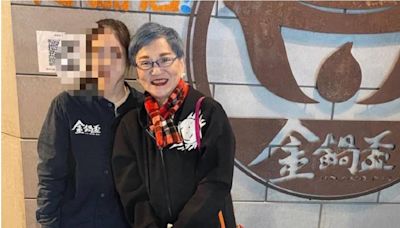搜尋結果
孟 陬 simp. # (孟陬) 孟 陬 Pronunciation [edit] Mandarin (): mèngzōu (): ㄇㄥˋ ㄗㄡ Mandarin (Standard Chinese) + Hanyu Pinyin: mèngzōu Zhuyin: ㄇㄥˋ ㄗㄡ Tongyong Pinyin: mèngzou ...
- Translingual
- Chinese
- Japanese
- Korean
- Vietnamese
- Zhuang
Han character
孟 (Kangxi radical 39, 子+5, 8 strokes, cangjie input 弓木月廿 (NDBT), four-corner 17107, composition ⿱子皿)
Glyph origin
Phono-semantic compound (形聲/形声, OC *mraːŋs): semantic 子 (“child; son”) + phonetic 皿 (OC *maŋʔ)
Etymology
From Proto-Sino-Tibetan *maŋ (“big; old; elder (brother, uncle)”); cognate with Anong ʈhi³¹ mɑŋ³¹ (“old; elderly”), Drung tvmvng (“elder sibling”), Burmese မင်း (mang:, “monarch; king”) (Schuessler, 2007; STEDT). Likely related to 兄 (OC *hmraŋ, “older brother”) (Sagart, 1999; STEDT). Perhaps also related to 芒 (OC *maːŋ, *maŋ, “great; extensive”) and 荒 (OC *hmaːŋ, *hmaːŋs, “vast; excessive; senile”) (Sagart, 1999; Schuessler, 2007).
Definitions
孟 1. eldest brother(also used in personal names) 2. first month of a season 2.1. 孟秋 ― mèngqiū― seventh month of Chinese calendar 3. (figuratively) first in series 4. (figuratively) great, eminent 5. to strive; to endeavor 6. (~族) Monpeople 7. Short for 孟子 (Mèngzǐ, “Mencius; Mencius(book)”). 8. Short for 孟加拉 (Mèngjiālā, “Bangladesh”). 9. Alternative form of 猛 (měng, “bold; powerful”) 10. a surname 10.1. 孟浩然 ― Mèng Hàorán ― Meng Haoran(Tang dynasty poet)
Hanja
孟 (eumhun 맏 맹 (mat maeng)) 1. Hanja form? of 맹 (“first in a series”). 2. Hanja form? of 맹 (“great, eminent”). 孟 (eumhun 맹랑할 망 (maengnanghal mang)) 1. Hanja form? of 망 (“shrewd, impudent, difficult”).
Han character
孟: Hán Việt readings: mạnh 孟: Nôm readings: mạnh, mảnh 1. Nôm form of mạnh (“strong; powerful; vigorous”).
5 天前 · Chi (2010) proposes that 黃 was originally a pictogram and the original character of 尪 (OC *qʷaːŋ, “a disabled person with a protruding chest or abdomen”).It has been phonetically borrowed for "yellow" since the era of the oracle bone script. He (1998) noted the possible ritual of burning disabled people with a protruding chest or abdomen to pray for rain as mentioned in Zuozhuan.
2023年10月9日 · Contents. 1 Chinese. 1.1 Etymology. 1.2 Pronunciation. 1.3 Idiom. Chinese [ edit] Etymology [ edit] 吳 王 欲 伐 荊 , 告 其 左右 曰 :「 敢 有 諫 者 死 ! 」 舍 人 有 少 孺子 欲 諫 不敢 , 則 懷 丸 操 彈 , 游 於 後 園 , 露 沾 其 衣 , 如 是 者 再 三 。 吳 王 曰 :「 子 來 , 何 苦 沾 衣 如此 ! 」,
如 U+5982 rú 0579 妇 U+5987 fù 0580 妃 U+5983 fēi 0581 好 U+597D hǎo, hào 0582 她 U+5979 tā 0583 妈 U+5988 mā 0584 戏 U+620F xì 0585 羽 U+7FBD yǔ 0586 观 U+89C2 guān, guàn 0587 欢 U+6B22 huān 0588 买 U+4E70 ...
2016年9月20日 · Chinese [ edit] For pronunciation and definitions of 授 人 以 鱼 不 如 授 人 以 渔 – see 授人以魚不如授人以漁 (“giving a person fish is not as good as teaching a person to fish; give a man a fish and you feed him for a day; teach a man to fish and you feed him for a lifetime ”). ( This term is the simplified form of ...
黃 黚 黚 simp. 黄 黚 黚 alternative forms 黃黅黅 / 黄黅黅 黃淦淦 / 黄淦淦 黃擒擒 / 黄擒擒 Pronunciation [edit] Cantonese (): wong 4 gam 4 gam 4 / wong 4 kam 4 kam 4 Cantonese (Standard Cantonese ...


